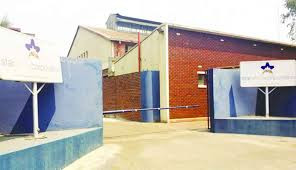
AS we usher in 2025, I extend a warm welcome to my loyal readers of the Business Compass column. Since its inception in June 2024, this platform has evolved into a thoughtful space for exploring the nuances of humanistic management in Zimbabwe.
With 23 articles, we have laid a robust foundation, reflecting on how businesses can uphold dignity, foster well-being, and contribute to societal flourishing. We were privileged to host an exclusive interview with Professor Michael Pirson, a global luminary in humanistic management, whose insights resonate deeply with Zimbabwe’s quest for sustainable business practices.
This year, the Business Compass takes a bold step forward, expanding its focus to include business development and project management alongside humanistic management. Through rigorous analysis, practical examples, and thought leadership, we aim to provide Zimbabwean businesses and leaders with actionable insights to navigate challenges and seize opportunities in a dynamic environment.
Reflecting on 2024
The year 2024 was transformative for this column and, indeed, for Zimbabwe’s business landscape. Our discussions underscored the need for a values-driven approach to management, one that balances economic imperatives with social impact.
Against a backdrop of economic reforms and shifting global dynamics, we examined themes such as ethical leadership, stakeholder engagement, and the integration of indigenous knowledge into modern management practices.
Notably, our dialogue with Professor Pirson illuminated the practical applications of humanistic management principles in contexts like Zimbabwe, where businesses often operate under significant constraints.
For example, local enterprises embracing community-centric practices — such as engaging smallholder farmers for value chain integration — demonstrate how businesses can thrive while addressing social challenges.
- Stanbic Bank to boost cross-border trade
- Zim firms seek export opportunities in Zambia
- Amplifying voices for global conversations
Keep Reading
2025 and beyond
This year, the Business Compass will build on these foundations with a clear agenda focused on three interconnected pillars:
l Business development: A catalyst for growth — In 2025, Zimbabwe’s economic trajectory hinges on unlocking the potential of its business sector. From export-oriented initiatives under the United Kingdom’s Eastern and Southern Africa Economic Partnership Agreement to rural industrialisation efforts, the opportunities are immense.
However, realising these requires strategic thinking and collaborative efforts. Take, for instance, the horticulture sector. With its fertile soils and favourable climate, Zimbabwe has the potential to become a leading exporter of high-value crops. Yet, barriers such as limited access to finance and inadequate infrastructure persist.
This column will explore how innovative financing models, public-private partnerships and capacity-building initiatives can address these gaps and spur sectoral growth.
l Project management: Bridging vision and execution — Effective project management is critical to turning grand ideas into tangible outcomes. In Zimbabwe, where resource constraints often derail projects, mastering the art of doing more with less is essential. Through case studies and expert analysis, we will delve into best practices for managing projects in complex environments.
For example, the Modified Coal Tar Project in Zvishavane exemplifies how disciplined project management can drive success even under tight constraints. Lessons from such initiatives can be scaled to other sectors, from energy to education, enhancing Zimbabwe’s capacity to deliver impactful projects.
l Humanistic management: Embedding values in business — While growth and efficiency are essential, they must not come at the expense of human dignity or environmental sustainability. This column will continue to champion humanistic management as a core business philosophy.
We will explore how companies can balance profit-making with social impact, ensuring their operations contribute to Zimbabwe’s Vision 2030 goals.
Consider the example of community-driven ecotourism projects in rural areas like Chirumanzu. These initiatives showcase how businesses can leverage local cultural heritage and natural resources to generate income while preserving ecosystems and empowering communities. Such models highlight the transformative potential of aligning business goals with societal needs.
Zim’s unique role in global discourse
Zimbabwe’s business environment is a microcosm of the challenges and opportunities facing emerging markets worldwide. By sharing our experiences and innovations, we have the opportunity to contribute to global conversations on sustainable development, ethical leadership, and resilient business practices. This year, the Business Compass will amplify Zimbabwean voices, showcasing how local solutions can inspire international audiences.
Conclusion
As we navigate the complexities of 2025, the Business Compass remains steadfast in its mission: To provide thought-provoking insights that empower Zimbabwean businesses to thrive responsibly. This year, we invite you — our readers, collaborators, and partners — to join us in shaping a more inclusive, innovative, and sustainable future.
Whether you are a seasoned entrepreneur, a budding project manager, or a student of humanistic management, this column is your platform for learning, sharing, and growing. Together, let us chart new horizons for Zimbabwean business and beyond.
After all, as the Shona proverb reminds us, “Kusina amai hakuendwe” (“Where there is no mother, do not go”). In the same spirit, we must anchor our journey in shared values and collective wisdom. Here is to an enlightening and impactful 2025. Welcome aboard!
Jongwe is an experienced business consultant with extensive expertise across various industries in Southern Africa, including higher education. — +27 82 408 3661/ +263 788 016 938 or by e-mail at consultgws@gmail.com










